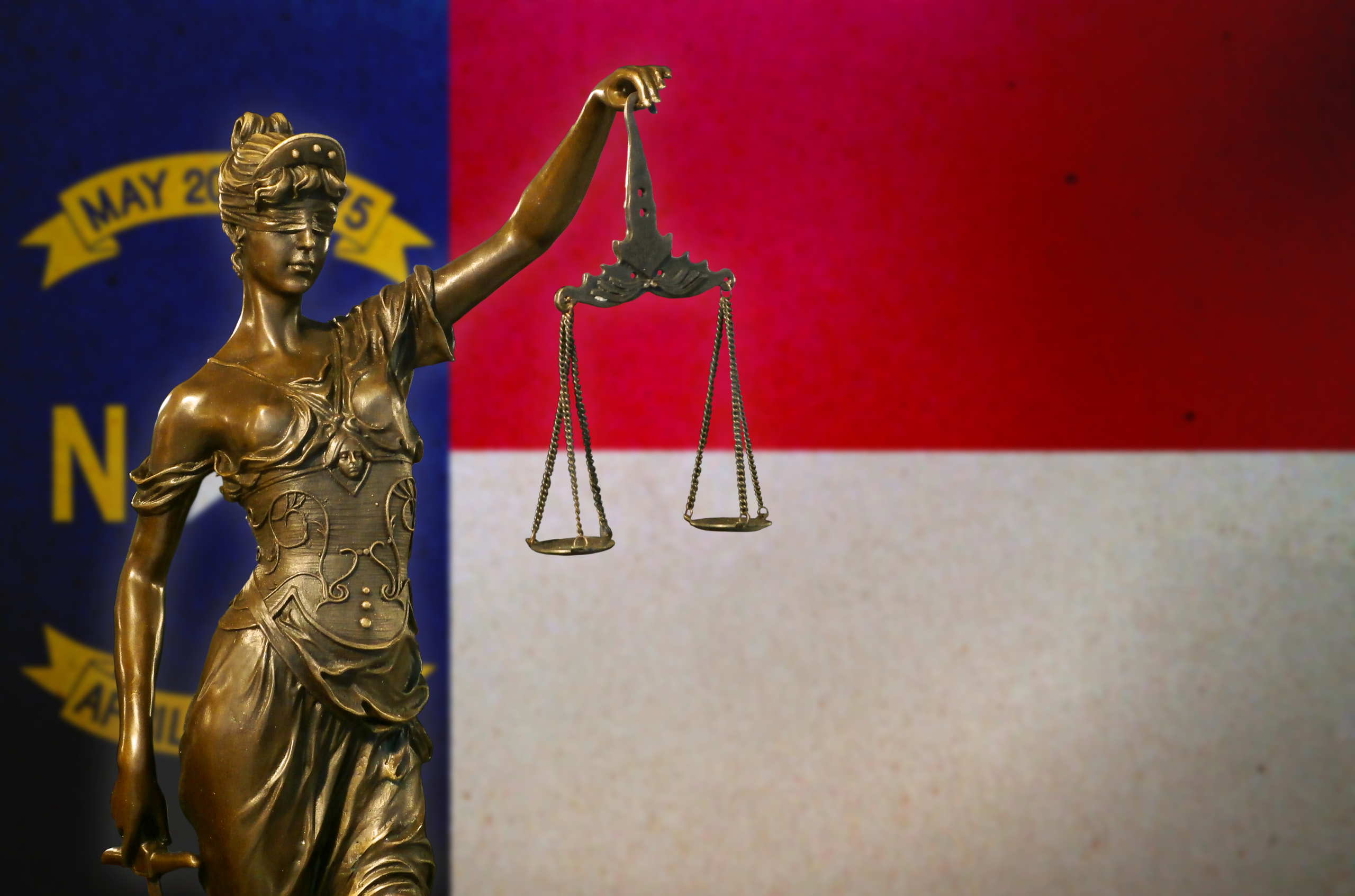By GARY D. ROBERTSON Associated Press
RALEIGH, N.C. (AP) — A federal appeals court has ruled that a North Carolina law that made it a crime for felony offenders who vote before they have completed their sentences without knowing they were breaking the law is unconstitutional.
A panel of the 4th U.S. Circuit Court of Appeals on Friday unanimously upheld a trial judge’s decision that found the law was discriminatory and harmed Black ex-defendants disproportionately.
At issue was a law against voting by felony offenders who were still serving sentences. In 2023, lawmakers updated the law so that, starting in January 2024, a person convicted of a felony had to know it was against the law to vote for it to be considered a crime.
But the old law wasn’t repealed and became the focus of the lawsuit originally filed in 2020. The plaintiffs — groups representing poor residents and Black union members — said that people could still be subject to prosecution for voting before 2024 under the old rules.
Melvin Montford, executive director of the North Carolina A. Phillip Randolph Institute, praised the ruling, saying it confirms “that this law was born out of racism and has been wielded to intimidate and disenfranchise Black voters.”
The decision means “this remnant of Jim Crow can no longer be used as a weapon against our communities,” he added.
The state constitution says a person convicted of a felony can’t vote until their rights of citizenship are restored “in the manner prescribed by law.” A felony offender can’t vote again until they complete their punishments, which include incarceration, probation, parole and other close supervision. Their rights are then automatically restored, but a person must reregister to vote.
U.S. District Judge Loretta Biggs sided in April 2024 with the plaintiffs and blocked enforcement of the pre-2024 law. The State Board of Elections, a lawsuit defendant, appealed, and oral arguments at the 4th Circuit were held in Richmond, Virginia.
The 4th Circuit panel found as credible arguments by the plaintiffs that the pre-2024 law requires them to use time and resources to educate people eligible to vote but remain fearful about re-registering again for fear of prosecution.
Evidence was presented showing the law had originated in 1877, placing harsh penalties on disenfranchised felony offenders. State attorneys acknowledged the state’s racially biased history. But they contended the ratification of a new North Carolina Constitution in the early 1970s — with several race-related provisions eliminated — created “a legally significant historical break” from the original 1877 statute and a reenactment in 1899.
But U.S. Circuit Judge DeAndrea Gist Benjamin, writing the opinion, still found that the law retained a discriminatory taint — its origins dating to the decade after the Civil War when Black voting had initially been expanded.
There’s been no substantive change to the pre-2024 law since 1899, and the elections board has conceded the 1899 law is “indefensible,” Benjamin wrote.
“The fact that prosecutions under the Challenged Statute could not be brought for future conduct is of no consequence,” she added. Circuit Judges Jim Wynn and Pamela Harris joined Friday’s opinion. The three 4th Circuit judges were nominated to their current positions by Democratic presidents.
A state Department of Justice spokesperson said Monday the agency is reviewing the decision. Appeals to the full 4th Circuit or U.S. Supreme Court are possible.
